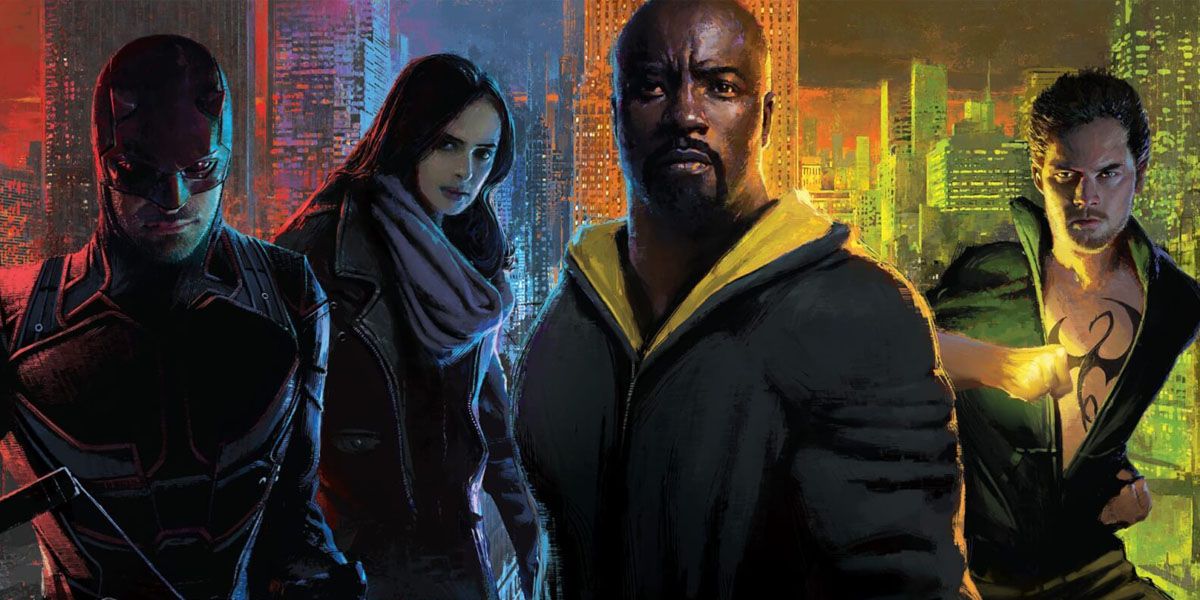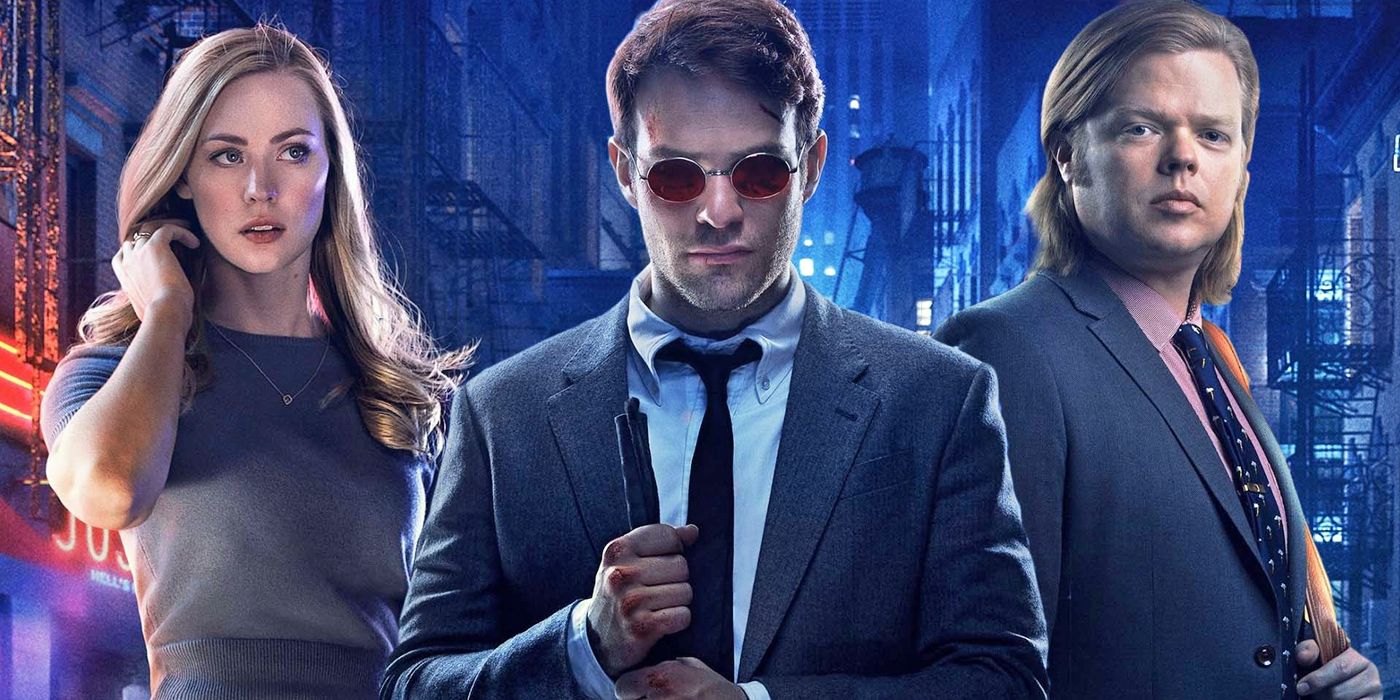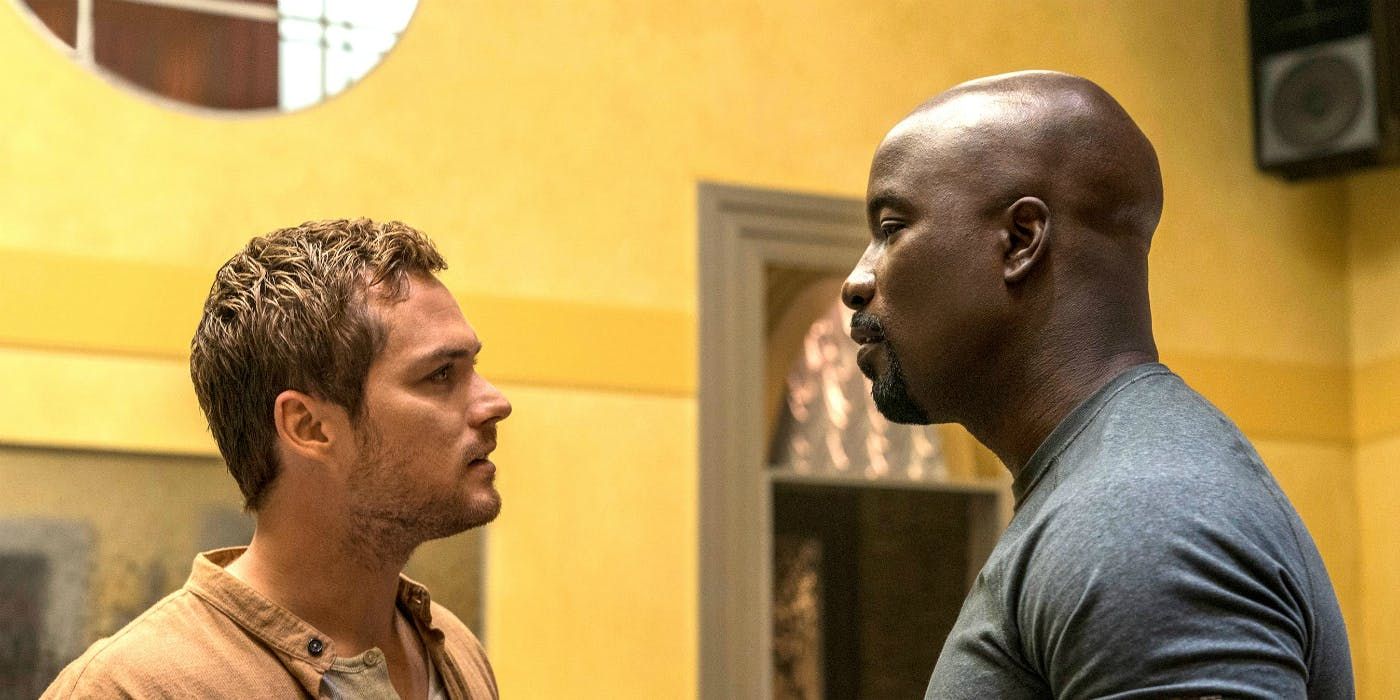The idea of the Marvel Cinematic Universe releasing four shows on Netflix once felt like a dream come true. The franchise was wildly popular, and Netflix was a hot steaming service riding the high from the success of Orange Is the New Black. It felt like a match made in heaven. Fast-forward to 2018, and the partnership is collapsing. October saw the cancellation of Iron Fist and Luke Cage, not long after the release of the series' second seasons. Then, this week, Netflix canceled Daredevil after three seasons, leaving only Jessica Jones and The Punisher, for the time being, at least.
As disheartening as the news is, it's really the only way all of this could end, as a variety of factors led to this moment.
RELATED: Netflix's Canceled Marvel Shows Aren't Heading to Disney+
The most obvious culprit is the reported steep decline in viewership of Luke Cage, Iron Fist and Daredevil; the first two dramas are estimated to have lost two-thirds of their audience between their first and second seasons, while the latter fell 57 percent between seasons 2 and 3.
There's also the matter of marketing. While all of Netflix's shows receive trailers and posters, that's more or less as far as these efforts go. Rarely is there a commercial on television for one of the streaming service's shows. By contrast, Hulu and Amazon seem to have no problem releasing TV spots.
By that same token, Netflix didn't do a good job of scheduling the release of its original series. Multiple shows can clash with one another in the same month, if not the very same week. Daredevil's third season arrived the same weekend as 13 other films and shows were released on the platform. Iron Fist debuted the same weekend as Marvel's Spider-Man arrived for PS4. It's long been an issue, but this year made it clear something has to change if beloved shows are to survive.
RELATED: Daredevil Will 'Live On' in Future Projects
But it's not all marketing and scheduling. All five Marvel shows suffered from not having enough plot to justify 13-episode season orders; only Iron Fist made the wise choice in its second season to shave off three episodes.
Despite having a stronger link to the broader Marvel Cinematic Universe, simply by being set in New York City, the shows weren't allowed to take advantage of that in any real way. The Chitauri invasion from The Avengers was referred to as "the Event," and few of the movie heroes were referred to by name (Thor, for example, was the "blond dude with the hammer," and the Incredible Hulk "the green monster, and I don't mean Fenway"). Agents of S.H.I.E.L.D., whose connections to the MCU grew flimsier with each season, did more to tie the television world to that of the films.
Each of the series also faced its own problem. The second season of Daredevil wasn't as strong as the first -- Jon Bernthal's Punisher aside -- and the long wait between seasons didn't help. Luke Cage could never really recover from killing off Mahershala Ali's Cottonmouth halfway through Season 1, and everyone knows Iron Fist was hobbled from the start. The series tried to make changes where they could, but they were either not big enough changes or else came too late to make any real impact.
The collapse of Marvel/Netflix is sad, as all three shows ended unceremoniously after teasing intriguing futures of their title characters. While they weren't perfect by any stretch of the imagination, it was ultimately Netflix growing too big and having too much on its plate that led to their downfall.



